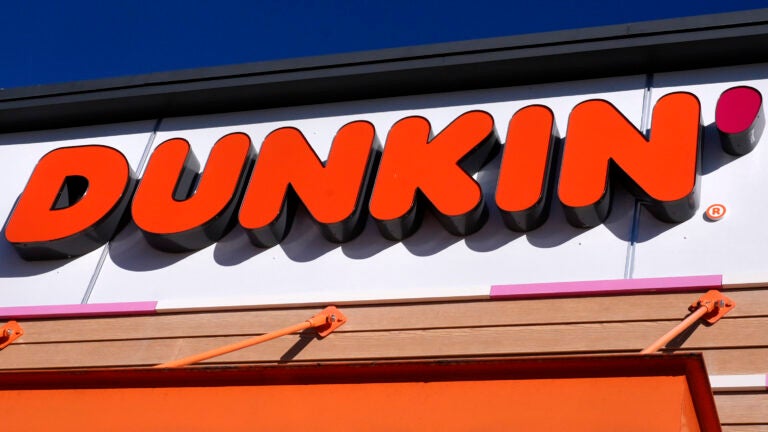AG fines more than 88 Dunkin’, McDonald’s, Subway franchises for breaking child labor laws – Boston.com

Report on Violation of Child Labor Laws in Massachusetts
Introduction
Attorney General Andrea Campbell announced on Tuesday that her office has issued citations against three companies operating more than 88 locations of Dunkin’, McDonald’s, and Subway franchises in Massachusetts for violating the state’s child labor laws.
Violation Details
- Cafua Management Company, LLC, which operates more than 80 franchises of Dunkin’ across Massachusetts, failed to obtain work permits before employing minors between February 2020 and February 2023. The company also allowed minors to work during legally prohibited hours, employed them beyond the state’s limit of nine daily working hours, and had them working without an adult supervisor after 8 p.m. The company agreed to a settlement with Campbell’s office which included $140,000 in penalties.
- The Brewster Company, LLC, which runs eight McDonald’s franchises in the state, failed between May 2021 and May 2024 to obtain work permits before employing minors, allowed the young workers to take shifts during legally prohibited hours, and let them stay on the clock beyond the limit of nine daily working hours. Brewster agreed to a settlement that included $63,930 in penalties.
- Knight Food Service, Inc., which operates several Subway franchises in Massachusetts, was found between February 2023 and August 2024 to have violated the state’s daily limit of working hours for minors, allowed the young workers to be without an adult supervisor after 8 p.m., and failed to get work permits before employing the minors. In addition, Campbell’s office alleged the company did not give the minors meal breaks when they were working more than six hours a day, a violation of state wage and hour laws. The company was issued $22,455 in penalties.
Importance of Child Labor Laws
Child labor laws exist to protect young workers and prioritize their safety and education as they learn new skills, earn income, and contribute to their communities. Enforcing these laws is crucial to empower youth and remind employers that Massachusetts is serious about protecting its workforce.
Sustainable Development Goals (SDGs)
- Goal 4: Quality Education – Child labor laws ensure that young workers have the opportunity to receive an education while working.
- Goal 8: Decent Work and Economic Growth – By enforcing child labor laws, Massachusetts aims to provide decent work conditions for all workers, including young workers.
- Goal 16: Peace, Justice, and Strong Institutions – Enforcing child labor laws promotes justice and strengthens institutions by holding employers accountable for their actions.
Conclusion
Violations of child labor laws by companies operating Dunkin’, McDonald’s, and Subway franchises in Massachusetts have been addressed by Attorney General Andrea Campbell’s office. The penalties imposed on these companies serve as a reminder of the importance of protecting young workers and ensuring their safety and education. By aligning with the Sustainable Development Goals, Massachusetts is taking steps towards achieving a more equitable and sustainable society.
SDGs, Targets, and Indicators
1. SDGs Addressed or Connected to the Issues Highlighted in the Article
- SDG 4: Quality Education
- SDG 8: Decent Work and Economic Growth
- SDG 16: Peace, Justice, and Strong Institutions
2. Specific Targets Based on the Article’s Content
- Target 4.4: By 2030, substantially increase the number of youth and adults who have relevant skills, including technical and vocational skills, for employment, decent jobs, and entrepreneurship.
- Target 8.7: Take immediate and effective measures to eradicate forced labor, end modern slavery and human trafficking, and secure the prohibition and elimination of the worst forms of child labor.
- Target 16.2: End abuse, exploitation, trafficking, and all forms of violence against and torture of children.
3. Indicators Mentioned or Implied in the Article
- Indicator 4.4.1: Proportion of youth and adults with information and communications technology (ICT) skills, by type of skill.
- Indicator 8.7.1: Proportion and number of children aged 5-17 years engaged in child labor, by sex and age group.
- Indicator 16.2.2: Number of victims of human trafficking per 100,000 population, by sex, age group, and form of exploitation.
4. Table: SDGs, Targets, and Indicators
| SDGs | Targets | Indicators |
|---|---|---|
| SDG 4: Quality Education | Target 4.4: By 2030, substantially increase the number of youth and adults who have relevant skills, including technical and vocational skills, for employment, decent jobs, and entrepreneurship. | Indicator 4.4.1: Proportion of youth and adults with information and communications technology (ICT) skills, by type of skill. |
| SDG 8: Decent Work and Economic Growth | Target 8.7: Take immediate and effective measures to eradicate forced labor, end modern slavery and human trafficking, and secure the prohibition and elimination of the worst forms of child labor. | Indicator 8.7.1: Proportion and number of children aged 5-17 years engaged in child labor, by sex and age group. |
| SDG 16: Peace, Justice, and Strong Institutions | Target 16.2: End abuse, exploitation, trafficking, and all forms of violence against and torture of children. | Indicator 16.2.2: Number of victims of human trafficking per 100,000 population, by sex, age group, and form of exploitation. |
Source: boston.com








